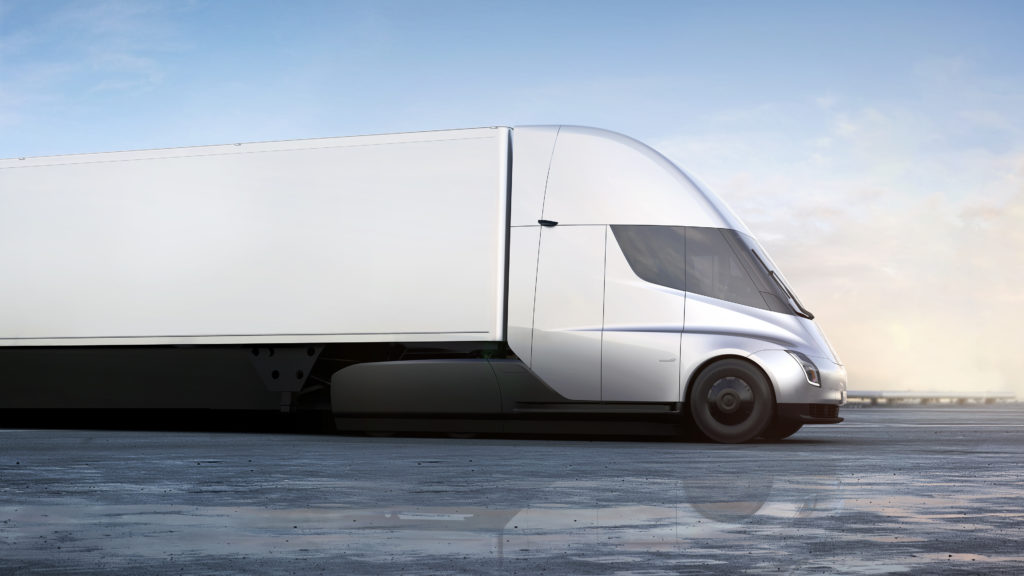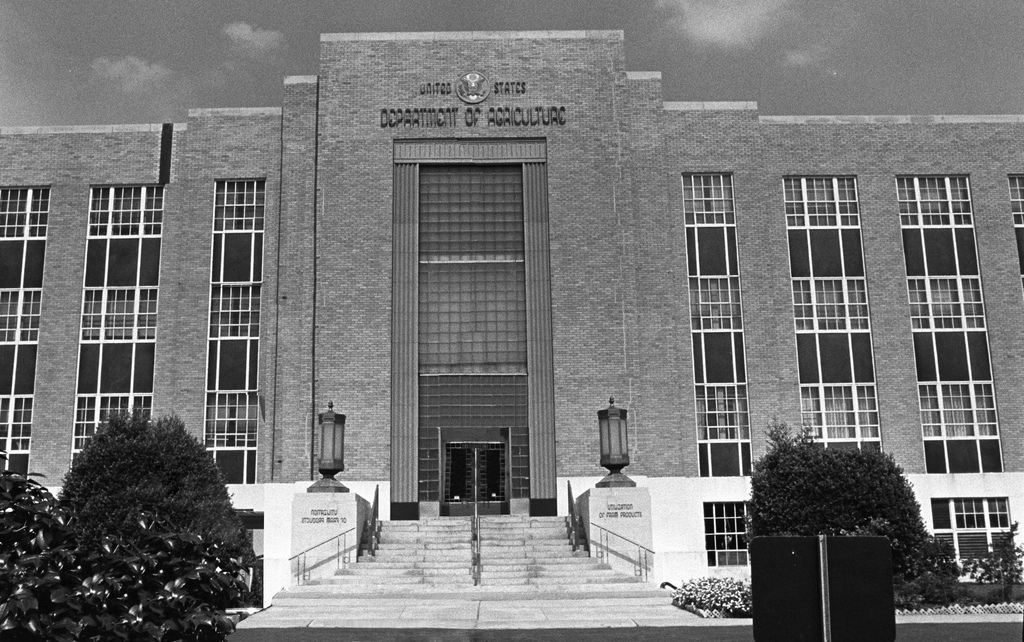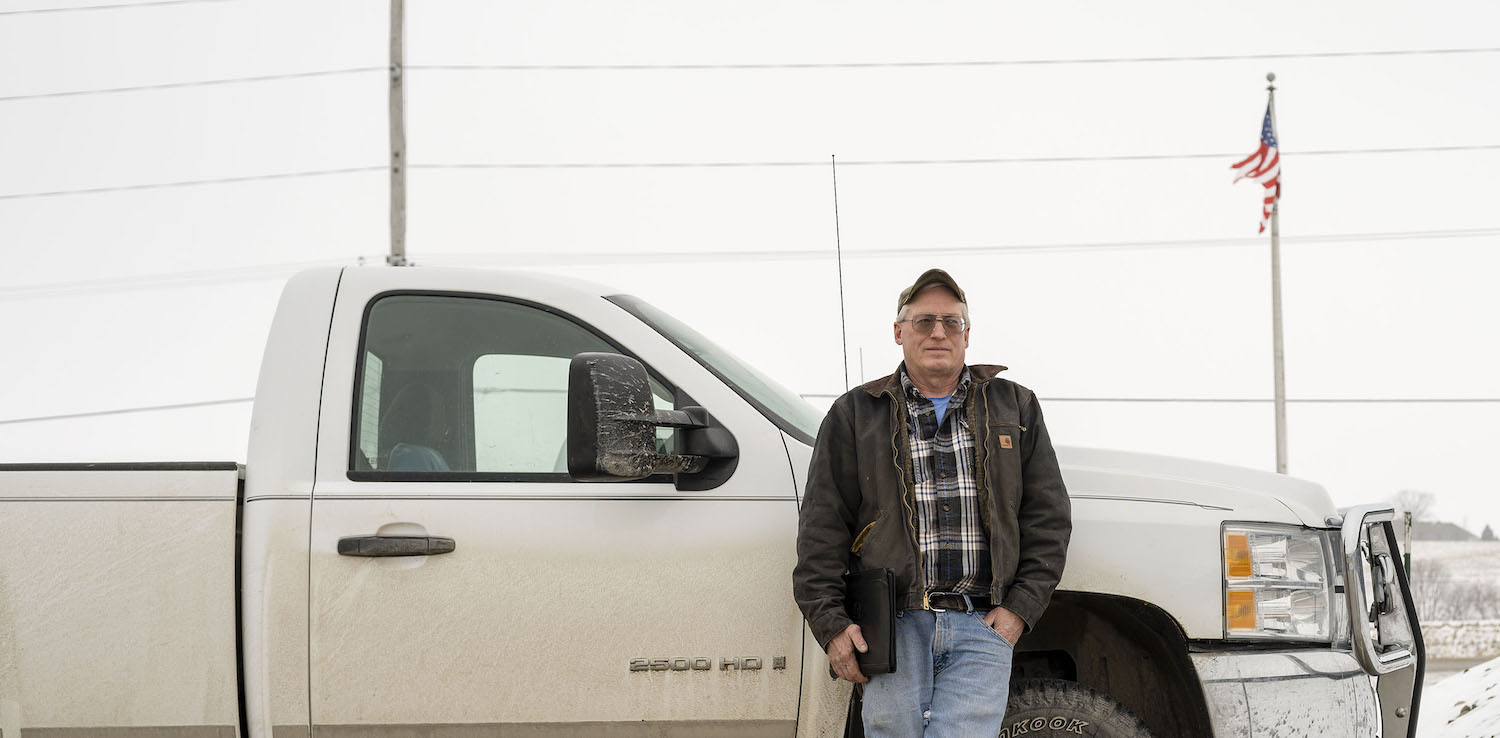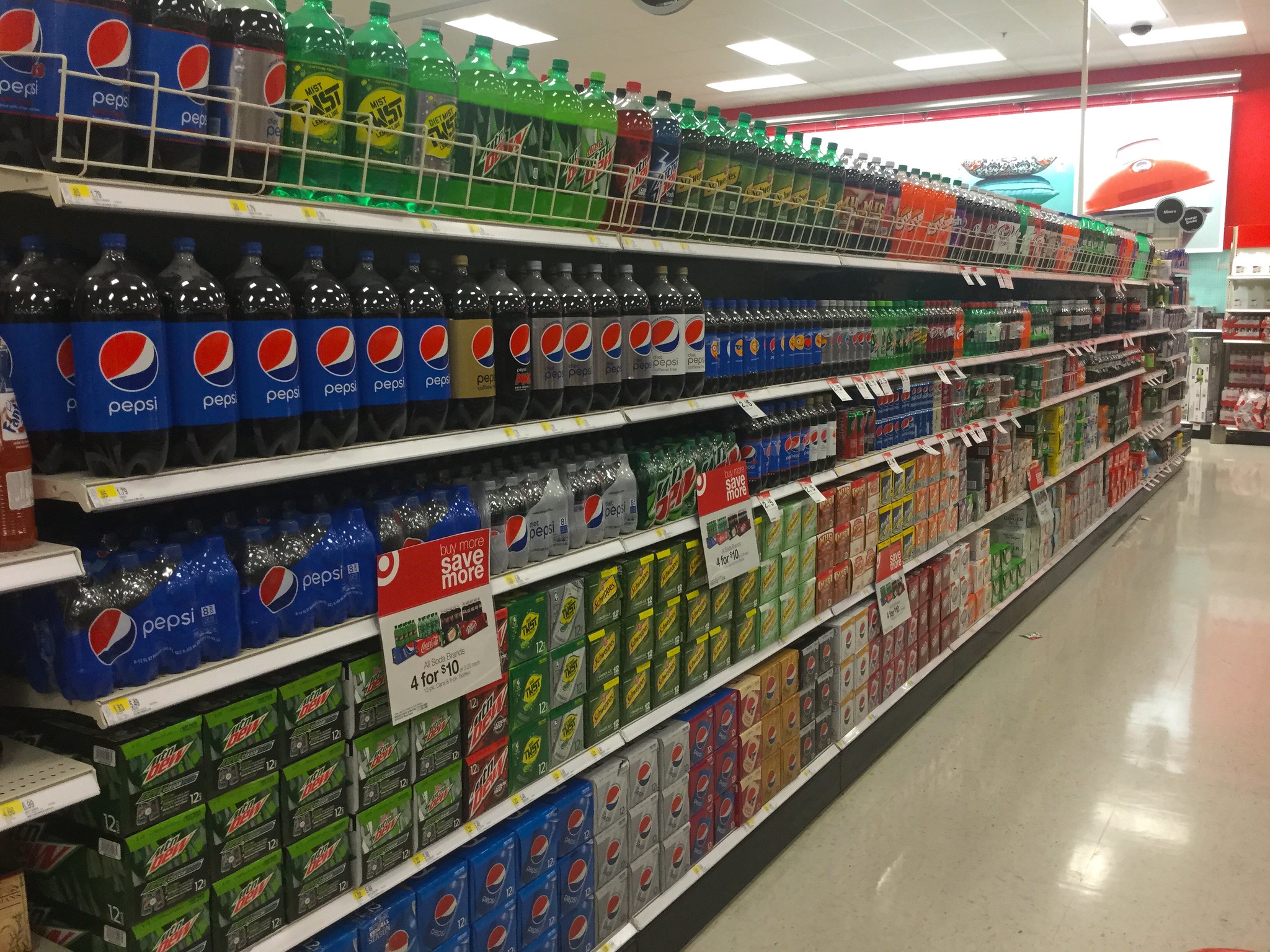
Photo courtesy of Tesla Motors
AB InBev, the world’s largest brewer, announced on Thursday that it has placed an order for 40 electric Tesla trucks, possibly the biggest order of the tech company’s planned rollout in 2019. In a press release, InBev cited a need to reduce its “environmental impact,” along with operational efficiency, as reasons for the order.
The goal, says InBev, is to use the trucks to move cargo from their 12 Anheuser-Busch breweries—located in cities including Los Angeles, St. Louis, Jacksonville, and Columbus—to wholesalers within 150 to 200 miles. That means drivers would be able to make an entire round-trip on a single charge, more than double the range of other electric vehicles. Plus, the Semi, as the model is known, will be equipped with autonomous driving capabilities, through a red switch that drivers can flick on during highway hauls.
But perhaps the reservation portends something else: a savvy move by InBev to cut into labor costs among a unionized fleet of drivers.
Along with fuel, the American Transportation Research Institute has found that labor is one of the biggest expenses for trucking companies, the Journal noted. A fleet of trucks without drivers would neatly sidestep that problem for the brewer.
Last month, Finn Murphy, author of The Long Haul, a memoir about three decades of long-haul truck driving, told the Guardian that driverless trucks are tremendously appealing to “the supply chain people” who are “nuts” about inefficiencies. He observed that many of today’s warehouse processes—including the loading and unloading of cargo—are already done by machines. “The only human beings left in the modern supply chain are truck drivers,” he said. Getting rid of them would be the “ultimate efficiency.”
 Photo courtesy of Tesla Motors
Photo courtesy of Tesla Motors Despite the political obstacles, partially autonomous trucks like the Semi could be where the action is
Labor advocates are trying to avoid that outcome. The International Brotherhood of Teamsters, which represents almost 600,000 truck drivers, including the workers at Anheuser-Busch’s breweries, has been making the case for its members on Capitol Hill. According to the Guardian, the union successfully convinced the House of Representatives to exempt commercial vehicles, like busses and trucks, from legislation that would regulate self-driving vehicles. In September, Teamsters General Secretary-Treasurer Ken Hall told Senate committee leaders that a similar bill could leave workers behind. That opposition is stalling the eventual release of trucks like the Semi. (The Senate bill is still in committee.)
When asked to comment on InBev’s Tesla order, a national Teamsters spokeswoman told The New Food Economy that the union would be meeting with the company to address safety concerns, and to emphasize that “our drivers are a critical part of operations and will continue to be.”
Technology observers believe that, despite the obstacle posed by the Teamsters in Congress, partially-autonomous trucks like the Semi could be where the real action is, and not in the driverless taxis that Uber has already piloted. The American Trucking Industry forecasts 3.4 percent annual growth until 2023. And that growth will be, in part, attributable to all the fresh demand created by the rise of online shopping. In theory, driverless trucks would allow for cargo to move continuously, 24 hours a day, rapidly expediting the supply chain.
The Journal does note that InBev isn’t the only company to have reserved the Tesla Semis. JB Hunt, Walmart, DHL, and Ryder have also put trucks on reserve.










